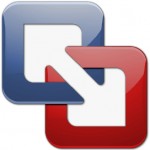operating system
An operating system (OS) is software that manages computer hardware and software resources and provides common services for computer programs. The operating system is an essential component of the system software in a computer system. Application programs usually require an operating system to function. Examples of Operating systems include Windows, MacOS, Linux, Unix, Solaris, and BSD. Operating systems usually have separate versions such as Windows 7, Windows 8, Linux Ubuntu, Linux Fedora, Mac OS 10.9 Mavericks, etc.
Ubuntu Linux
Parallels
Parallels is a virtualization utility that allows you to run a Windows operating system environment within the MacOS. The platform shares your computer’s hardware resources with the guest operating system according to customizable specifications. Users can dedicate a set amount of memory, number of processors, and other computer resources to the virtual instance according the resources needed for the intended software. Parallels also streamlines the interface between the two for an integrated experience. It allows the user to use a Windows application without necessarily having to see the windows desktop and start menu.
Parallels is a competitor to VMWare Fusion. View the Parallels website for more information.
VMware Fusion
VMware Fusion allows Intel-based Macs to run operating systems such as Microsoft Windows, Linux, NetWare, BSD, or Solaris on virtual machines, along with their Mac OS X operating system. This is useful for using different software pieces based on different operating system platforms on the same computer. The Unity feature removes the windows start menu and desktop, focusing the window on just the application needed, and enabling a seamless and streamlines experience. Fusion is also useful for testing out various operating systems and packages in a non-destructive environment. Virtual machines, once created, can be backed up, restored, versioned and transported to other computers. This means you can reconfigure the software without the fear of corruption or data loss. You can also share virtual machines to be imported into other computers’ installation of Fusion, sharing an exact replica of your configuration, software, and data.
Because Fusion runs on top of Mac OS X, performance is decreased significantly from a native “bare metal” installation of the original operating system. Fusion can also be an excellent substitute for running Boot Camp, a software package that allows a user to reboot into a native Windows environment. UNCC ITS is ending support for BootCamp in 2015, so software packages like VM Fusion are best to use when Windows is needed on a Mac.
For more information visit VMWare Fusion.


